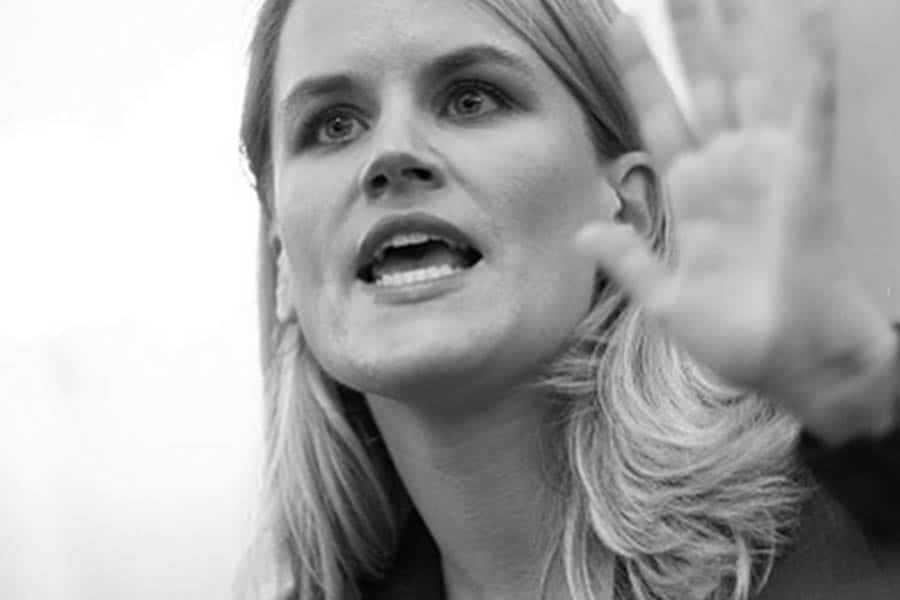
As a new, anonymous Facebook whistleblower comes forward alleging that the tech monolith puts profit before people, here at RUSSH we're outlining everything we've learned from their statements, beginning with Frances Haugen's interview with 60 Minutes to now.
Who is Frances Haugen?
Frances Haugen is a 37-year-old data scientist and former product developer at Facebook who has spent more than a decade working in the tech industry at companies like Pinterest and Google. She began her role at Facebook in 2019 and was onboard its civic integrity team which specialised in election-related issues. According to The Guardian, Haugen took on the role at Facebook with a fierce desire to help the company combat misinformation after she lost a close friend to online conspiracies.
In May this year, Haugen left her job at Facebook after it was clear that the company had no intention to resolve these issues. Upon her departure from Facebook, Haugen took thousands of internal documents with her which she then leaked to the Wall Street Journal in late September, sharing them with US Law Enforcement, also. What these documents reveal is that Facebook has been lying to the public and its shareholders that it was making significant headway against hate, violence and misinformation, despite having the tools to do so.
When asked about what pushed her to leak these documents, Frances Haugen said that she did what she "thought was necessary to save the lives of people, especially in the global south, who I think are being endangered by Facebook’s prioritisation of profits over people. If I hadn’t brought those documents forward that was never going to come to light.”
What have we learned about Facebook?
On October 5, Frances Haugen appeared before the US Senate beginning her statement with this telling line, "I’m here today because I believe Facebook’s products harm children, stoke division and weaken our democracy."
During her testimony, Haugen revealed that Facebook knew Instagram users were being led to anorexia-related content. What would begin with benign topics like healthy recipes would unfold into what Haugen described as "anorexia-promoting content over a very short period of time". As internet natives, this information isn't exactly surprising, seeing as many of us have experienced this dark and swift internet spiral ourselves. However it is a devastating to think that this is a deliberate tactic tolerated by Facebook on Instagram. Not only that, but Haugen told Congress that Facebook intentionally targets teens and children as young as eight years old for its Messenger Kids app.
Even more insidious is that Haugen reported that Facebook was "literally fanning ethnic violence" in countries like Ethiopia, Myanmar and India by not policing its services adequately and allowing inflammatory content to circulate. It's because of this that Haugen has condemned Facebook and its other social media platforms as being harmful to democracy.
What's more, is that that Haugen has said Mark Zuckerberg has actively chosen metrics or "meaningful social interactions" - and therefore money - over "soft-options" that would make the Facebook platform less "twitchy" in countries of concern and significantly reduce misinformation, hate speech and other inflammatory content.
As for the new, anonymous whistleblower - who is also a former Facebook employee - they recently wrote a five-page affidavit that mirrored the concerns brought up by Haugen. The affidavit, which was submitted to the US Securities and Exchange Commission, alleged that "Facebook officials routinely undermined efforts to fight misinformation, hate speech and other problematic content out of fear of angering then-President Donald Trump and his political allies, or out of concern about potentially dampening the user growth key to Facebook’s multi-billion-dollar profits.”
What solutions is Haugen suggesting?
So what reforms has Haugen suggested to fix these concerns? As with all systemic issues, it begins at the top. Haugen has said the issue is that there are no checks and balances to rein in Mark Zuckerberg and shareholders have been kept in the dark when it comes to the reality of how harmful the algorithm is. While, Haugen doesn't believe the company should be broken up - although Alexandria Ocasio-Cortez offers a great reason for the contrary - she does believe the issue lay in transparency or lack thereof, an issue the forthcoming Facebook rebrand will only distract from.
“The core of the issue is that no one can understand Facebook’s destructive choices better than Facebook, because only Facebook gets to look under the hood,” she said. "With greater transparency we can build sensible rules and standards to address consumer harms, illegal content, data protection, anticompetitive practices, algorithmic systems and more," Haugen continued.
What she has suggested is this; Facebook should eliminate engagement-based ranking algorithms and return to chronologically-ordered feeds - a call many have been practically begging for for years. The next is that a federal regulator should be instated to audit Facebook's features and algorithms and finally, there needs to be routine and transparent data disclosures to appropriate researchers.
In the context of Australia, Haugen has spoken with Australian politicians revealing that what Facebook fears most is government regulation. She has suggested that the Australian government team up with the US in order to create and enforce transparency laws.
What has Facebook said of the allegations?
At this stage, Mark Zuckerberg has only refuted Haugen's claims. In a Facebook post following Haugen's testimony, Zuckerberg said, "It's difficult to see coverage that misrepresents our work and our motives".
Facebook spokesperson Andy Stone has also questioned Haugen's authority to make these claims, saying that Haugen "did not work on child safety or Instagram or research these issues and has no direct knowledge of the topic from her work at Facebook."
Image: Instagram



